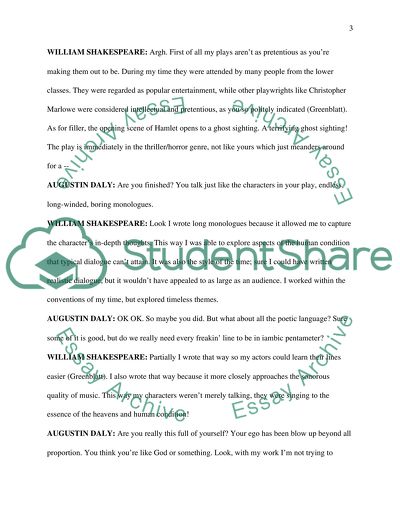Cite this document
(A Dialogue of Shakespeare and Daly Essay Example | Topics and Well Written Essays - 2000 words, n.d.)
A Dialogue of Shakespeare and Daly Essay Example | Topics and Well Written Essays - 2000 words. Retrieved from https://studentshare.org/performing-arts/1606478-drama-115-construct-a-dialogue-on-hamlet-dalys-under-the-glass-light
A Dialogue of Shakespeare and Daly Essay Example | Topics and Well Written Essays - 2000 words. Retrieved from https://studentshare.org/performing-arts/1606478-drama-115-construct-a-dialogue-on-hamlet-dalys-under-the-glass-light
(A Dialogue of Shakespeare and Daly Essay Example | Topics and Well Written Essays - 2000 Words)
A Dialogue of Shakespeare and Daly Essay Example | Topics and Well Written Essays - 2000 Words. https://studentshare.org/performing-arts/1606478-drama-115-construct-a-dialogue-on-hamlet-dalys-under-the-glass-light.
A Dialogue of Shakespeare and Daly Essay Example | Topics and Well Written Essays - 2000 Words. https://studentshare.org/performing-arts/1606478-drama-115-construct-a-dialogue-on-hamlet-dalys-under-the-glass-light.
“A Dialogue of Shakespeare and Daly Essay Example | Topics and Well Written Essays - 2000 Words”. https://studentshare.org/performing-arts/1606478-drama-115-construct-a-dialogue-on-hamlet-dalys-under-the-glass-light.


